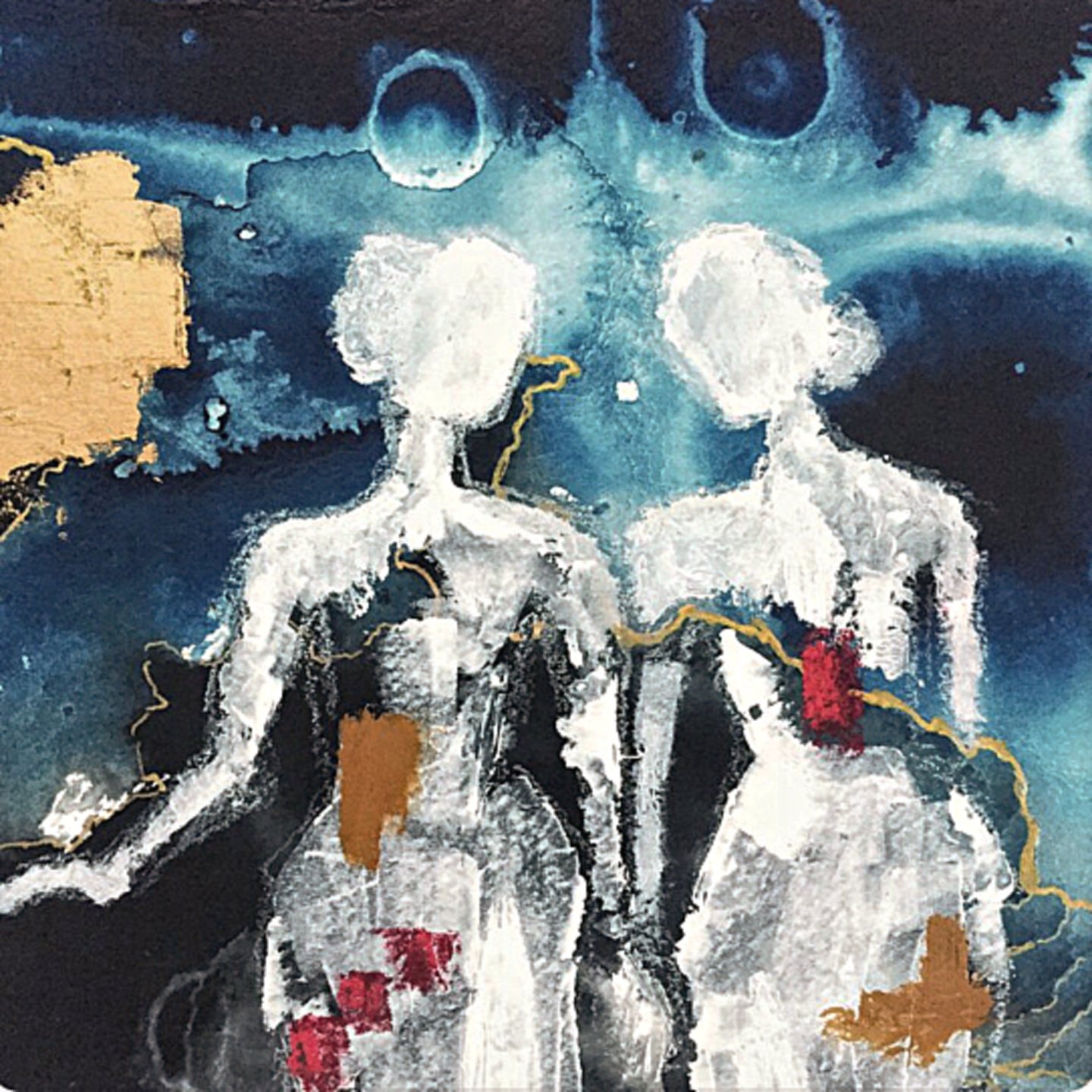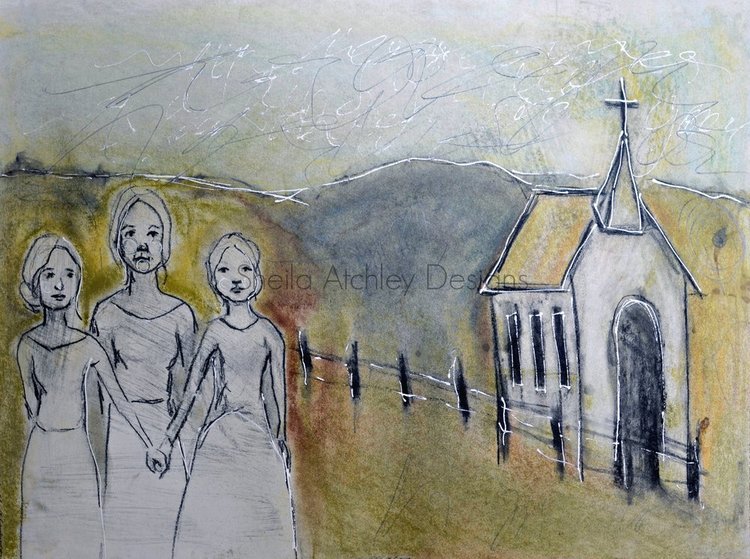A New Original is Available
“Georgia Lowland Marsh”, rendered in handmade oils, 10x20” framed original is available.
I will be uploading her to the shop as soon as her paint dries. The kisses of white take awhile to cure, actually.
If Ever You Leave
I recently read an Instagram post - written by a former pastor who is someone I don’t know.
Still, the criticism levied against “the church” is one I do know. The criticism is one that I have heard so. many. times. in my 30+ year tenure of ministry. The criticism goes as follows:
Someone leaves their church, or they step out of a role they played in that church, after years of being a part of it. Afterwards, it feels as if the former church relationships experience a massive shift, and some even seem to disappear. Here was the conclusion drawn by this former pastor:
When that happens, it must be (again, only in the mind of the Instagram post writer) because nothing of any substance existed to begin with.
…trains of thought can go off-track…
I both beg to differ and beg that we be honest and grown-up about this.
Shared mission is relationship.
Proximity is relationship.
Covenant, rhythm, service, showing up week after week, these are not illusions of intimacy. They are the very materials out of which relationship is made. To suggest otherwise is to adopt a modern, therapy-informed, hyper-individualized definition of “real relationship”…one that Scripture does not share.
The problem when someone leaves a church is not that no real relationship existed.
The problem is this:
The relationship was real, but it was real in a particular form, within a particular season, with a shared center.
And when that center is voluntarily exited, the form of the relationship necessarily changes, and that is not abandonment. That is simply a non punitive, very natural consequence.
If it would not be misconstrued as being condescending, I would love to smile and say, “Class. Look at the chalkboard.” And then, I would pick up my dusty chalk, and scratch these words:
Leaving Is a Choice
Choices Have Relational Shape
ANYONE CAN LEAVE.
(unless you’re in a cult…
…or Hotel California)
Leaving is a personal choice.
That personal choice has a relational shape
and natural (not punitive) consequences.
When someone leaves a church community, they are not merely changing a job or leaving a volunteer post. They are stepping out of a shared life pattern. It is unreasonable to leave a shared structure and then blame the structure for no longer holding you.
People did not suddenly “reveal” that they never cared.
They are simply continuing to live the life they are quite thankful for, care about, and are still committed to.
If you leave the river, you don’t get to accuse the water of a “lack of love”, for continuing downstream.
Proximity and Mission Were Not the Problem. They Were the Glue
Proximity (however humble) didn’t fake closeness.
Mission (however simple) didn’t replace intimacy.
They created it. (I might arm wrestle you over that one, because it’s a stone cold fact that can be proven Biblically - but this post is already too long. I will save that for another day.)
Church life is not a loose collection of private friendships; it is a communal vocation.
(Oh please read that last sentence once more!). Relationships in church life are not ever meant to be curated; rather, they are meant to be received with gratitude. They are meant to be experienced through shared obedience, shared worship, and shared labor. To later shrug and say, “It must’ve been only about what I could do in the church. Everything I experienced must have been a mirage of ‘mere proximity’.” to think that is to fundamentally misunderstand how embodied human community actually works.
Every meaningful human bond is shaped by:
Place
Practice
Repetition
Shared purpose
Strip those away, and of course the expression changes. Strip those away, and you may have a Rotary Club, but not a church. Heck, strip those away, and you cannot even have a decent book club!
Why is this not as plain as the nose on our face? The fact that place, practice, continuity, and purpose form a bond, doesn’t mean that bond is “less than” or false when you strip away place, practice, continuity, or purpose.
The Quiet Projection at Work
There is a subtle projection embedded in posts like the one I read on Instagram that day, and it’s this:
“If people don’t pursue me after I leave, it proves the relationship was shallow.”
But another, equally plausible interpretation exists:
They honored your decision to go, trusted you meant it, and did not assume an entitlement to remain central in your life.
A very important form of love is respect. It may be, the person leaving is experiencing exactly that manifestation of love.
A More Honest, More Mature Frame
In this post I hope to offer, quite frankly, a perspective that is truer, kinder, and more spiritually coherent:
The relationships were real. As real as any friendship you’ve read in the book of Acts.
They were formed around shared worship, shared labor, and shared commitment.
When one person leaves that shared life, the relationships do not automatically transfer into a new form.
Grief is understandable.
Revisionist narratives are not necessary. In fact, the one revising the narrative is the one who is not loving well.
We can say: “I miss what we had.”
Without saying: “What we had was not real.”
The Invitation
If someone leaves a church and feels even a little bit lonely afterward, the answer is not to dismantle the meaning of the past. The answer is to grieve privately, bless the season that was, and take responsibility for what is. And there’s always the invitation to simply return.
This too is Biblical…and could even be fun!
.


